Applied Learning Programme (ALP)

Innovative Yangzhengnites who are Champions of Sustainability
Piloted in 2023, Yangzheng’s Applied Learning Programme (ALP) is focused on Innovation and Enterprise. Through the programme, we hope to empower Yangzhengnites to take the initiative and innovate to make a positive impact on the community.
ALP helps Yangzhengnites appreciate what they learn in the classroom and apply them to the real world. The emphasis is on the application of thinking skills, integrating knowledge across subject disciplines, stretching the imagination and applying these in real-world settings in society and industries.
21st Century Competencies such as Critical and Creative Thinking are also desirable outcomes from the programme. To achieve this, ALP@YZPS is anchored by the Design Thinking framework to allow Yangzhengnites to develop an empathetic mindset towards problem solving.
ALP@YZPS is also a platform to implement the Eco Stewardship Programme that is one of the key programmes of the SG Green Plan (www.GreenPlan.gov.sg). This is to raise awareness of, and commitment to sustainability. Mapping ALP@YZPS to the SG Green Plan, the Primary Four’s will be focusing on Safeguarding Food Security, and Primary Five’s will be focusing on Water Conservation and Water Efficient Practices.
The learning experiences designed aims to help Yangzhengnites understand the importance of water and food sustainability and equipped them with Design Thinking skills to solve problems.
Primary Five - Water Conservation and Water Efficient Practices.
In Term 1 of 2024, the Primary Five students embarked on their ALP journey by participating in a Design Thinking workshop where they collaborated with their classmates to create innovative solutions for a sustainable school town using the five stages of Design Thinking – Empathy, Define, Ideate, Prototype, Test. During the workshop, the Primary Five students engaged different user groups such as canteen vendors, school operation support staff, teachers, and students from other levels to understand their needs regarding water conservation and water efficient practices.
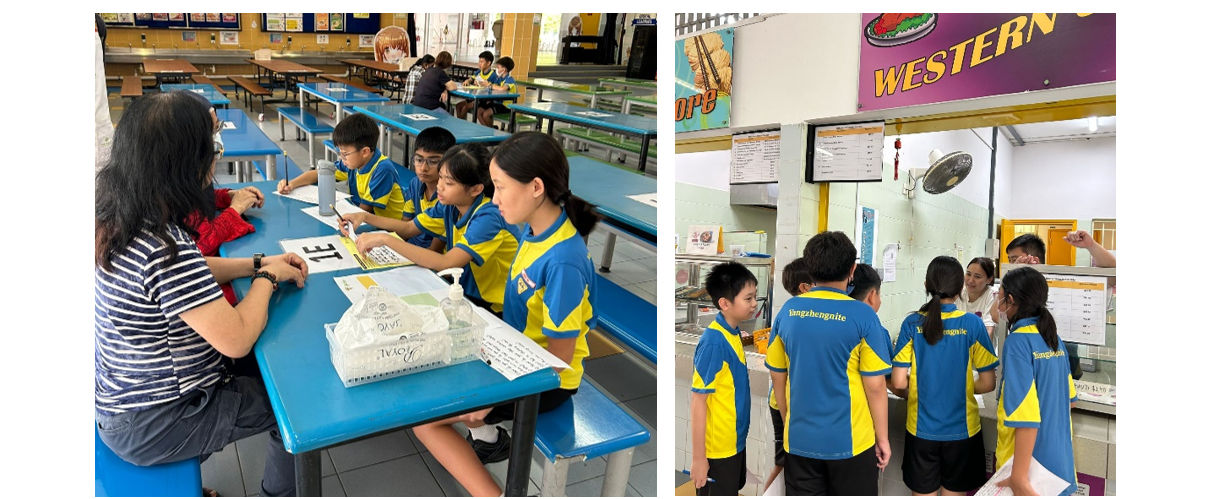
The students then analysed the data gathered from the interviews and brainstormed ideas to solve their users’ problems innovatively and creatively.
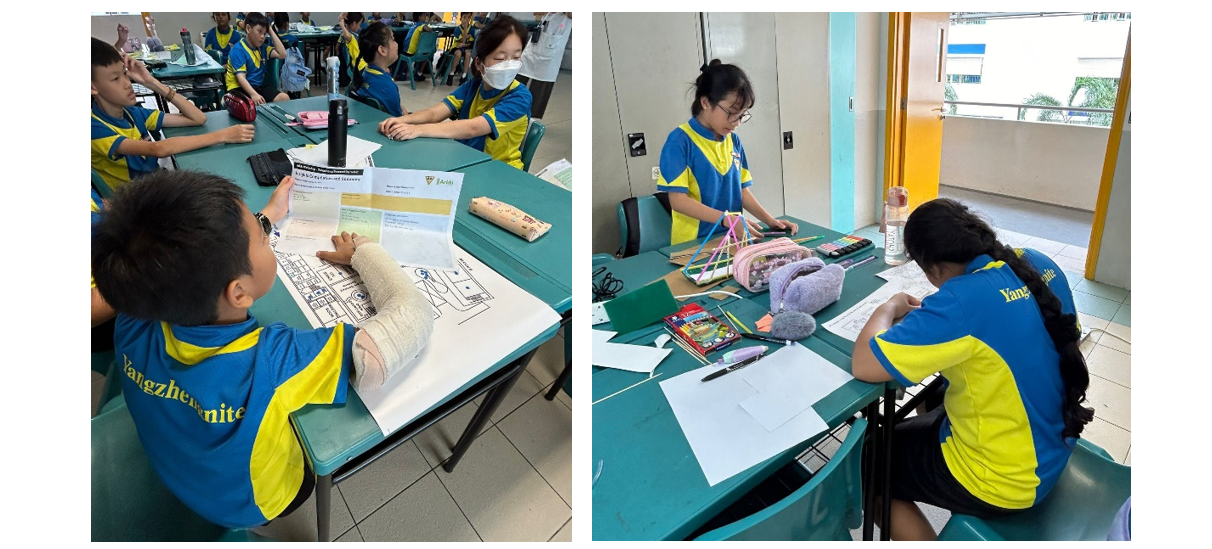
From the brainstorming phase, the students refined their ideas with guidance from the trainers and teachers and came up with the prototypes. As a class, ideas are combined to design a sustainable “Yangzheng Town”. For example, mascots and posters were created as marketing and educational tools to raise awareness about water efficient practices. On the other hand, games were also designed to teach the users water saving habits.
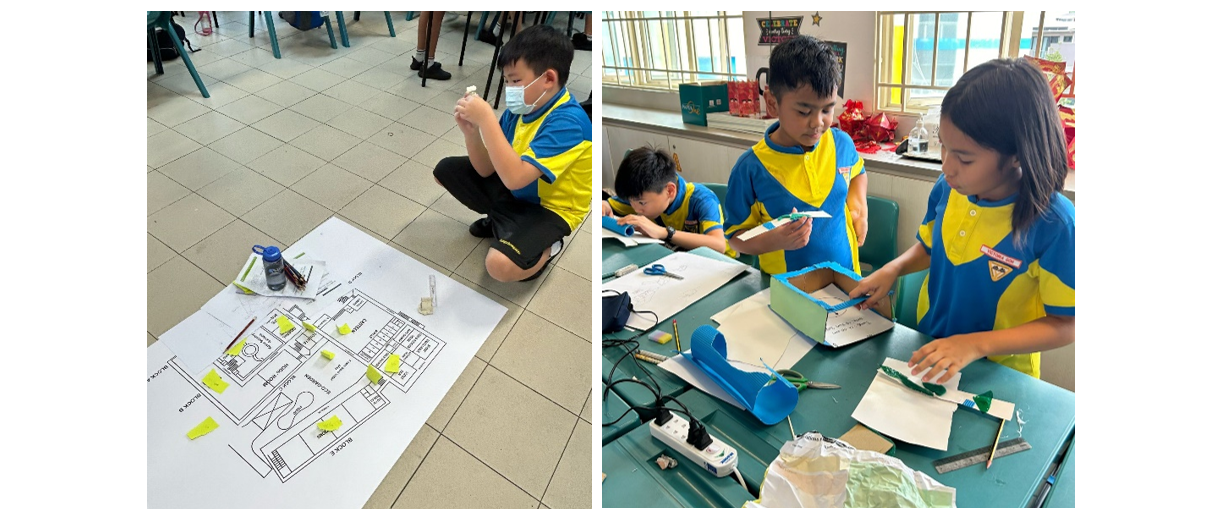
The students also tested out their prototypes and constantly refined their solutions based on feedback from the users.
At the end of the programme, the Primary Five cohort gathered in the Hall
for an exhibition where every class showcased their interpretation of a
sustainable “Yangzheng Town”. There were representatives from each class
to present their class’ ideas to the whole cohort. It was an
opportunity to build the students’ confidence to speak in front of a large
group. Students and teachers then went on a “Gallery Walk” to learn more
about each group’s innovative and creative solutions.
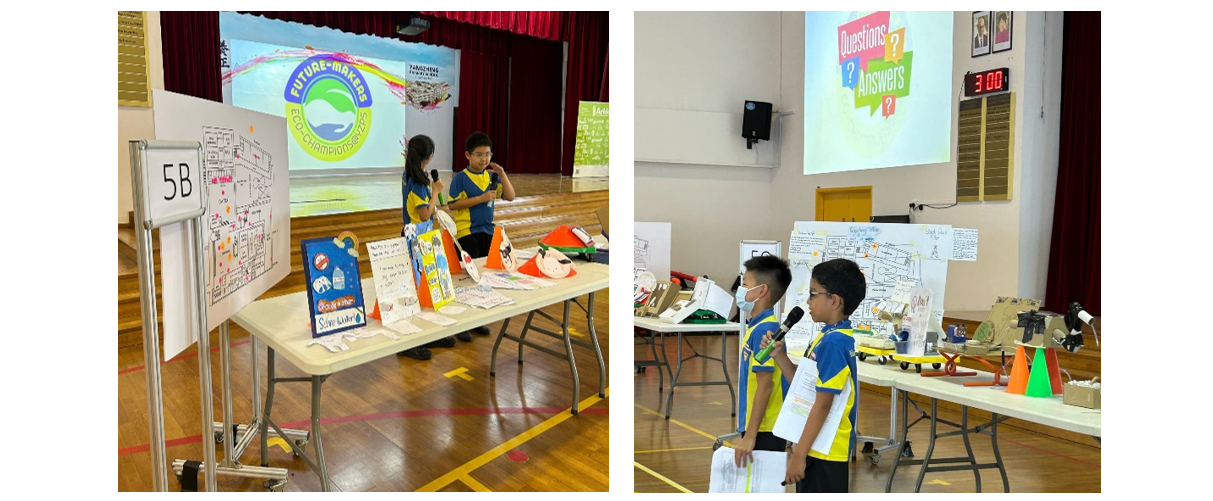
Primary Four - Safeguarding Food Security
In Term 2 of 2024, to kickstart the Primary Four’s journey in ALP, they attended an assembly talk on food security. They then went on a Learning Journey to Edible Garden City to learn how they can improve food sustainability and resilience and observe the different methods of growing crops in Singapore.
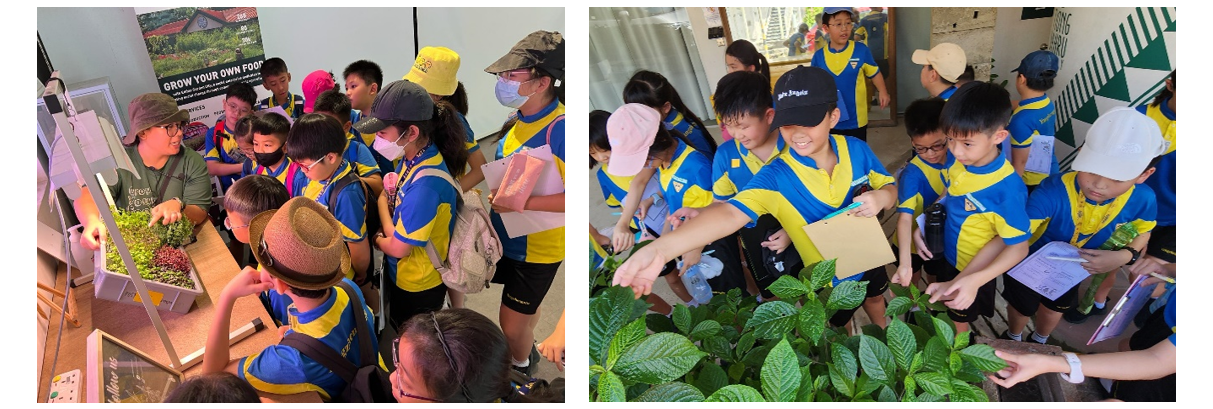
After that, the students participated in the Design Thinking workshop where they also learnt about the Five Design Thinking stages and applied them to their projects.
Each class interviewed different user groups – Yangzhengnites, teachers, school support staff, etc. Through the interviews, the students understood the users need about food sustainability and resilience.

The students then continued to refine their problem statement and started to brainstorm innovate and creative ideas for their users.

Guided by the trainers and teachers, the students finalised their project ideas and prototypes and tested them out with their target users. Upon receiving feedback from the users, the students did a final touch-up of their projects and prepared for the exhibition.
During the exhibition, each class selected a representative project to be presented in front of the cohort. At the end of each presentation, the audience could ask questions related to their peers’ projects and give constructive feedback.
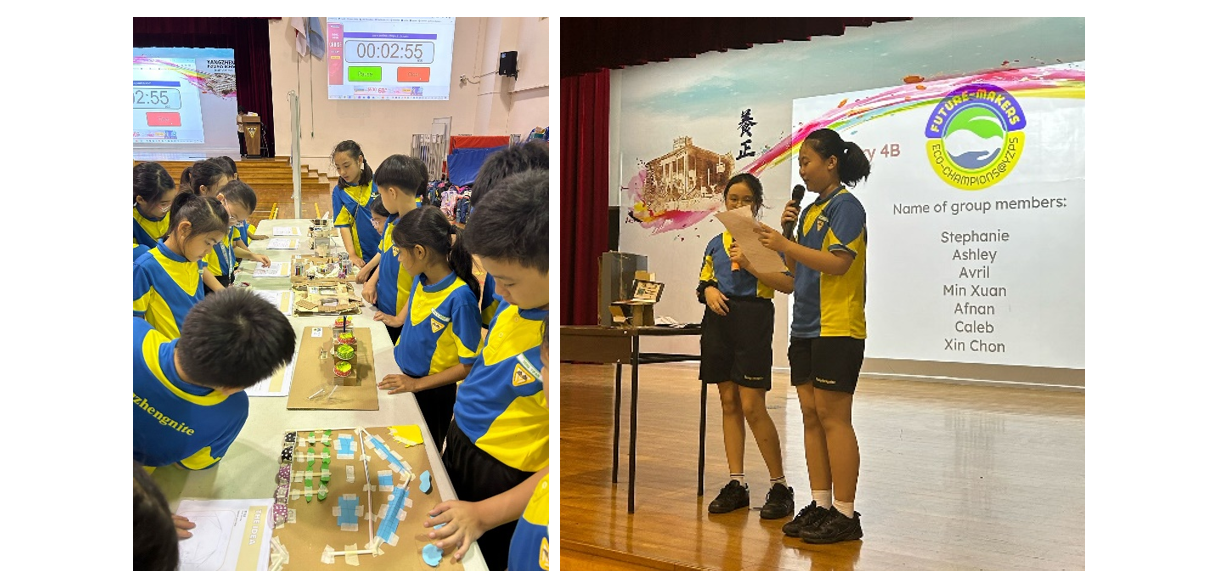
In summary, ALP@YZPS aims to nurture innovative Yangzhengnites who are champions of sustainability by equipping them with problem-solving skills anchored by the Design Thinking framework, in line with the SG Green Plan.

